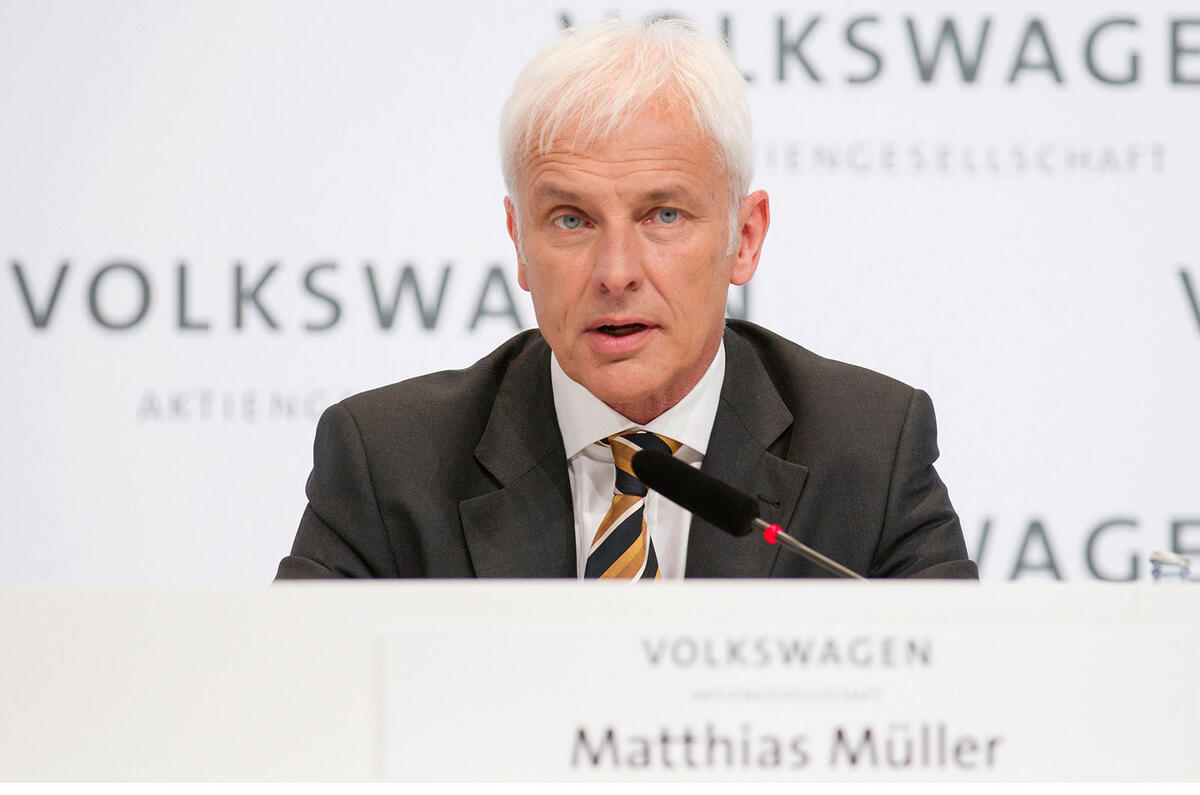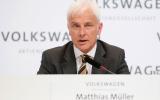Porsche boss Matthias Müller has been announced as the new CEO of the VW Group, replacing Martin Winterkorn, who resigned from the top position at the scandal-hit firm on Wednesday.
Müller, who had emerged as the frontrunner for the top job at VW earlier this week, is said to have signed a contract that lasts through to 2020. Several other major changes were also announced, as the VW Group heavily revised its management structure to focus on more responsibility and governance at regional level.
“Mr Müller is happy to take this on at difficult times for the company. Müller knows the VW Group and will immediately set upon his new tasks with his whole strength. We particularly appreciate his critical view of things," said Berthold Huber, deputy chairman of the supervisory board for the VW Group.
“The emissions test stories are a moral and political disaster for VW. Illegal behaviour of development engineers in development of engines has shocked the public. I would like to apologise in every form in front of the public, the authorities and our investors,” he added.
Huber confirmed that figures at the VW Group would be suspended - but stopped short of announcing the much-expected departures of several key figures in the engineering division. “The board of management, according to latest findings, has recommended to immediately suspend some employees until final investigations have been made," he said. "An American legal company has been put in charge of further investigations and they are also to prepare.”
New VW boss Matthias Müller said: "My most urgent task is to win back trust for the Volkswagen Group – by leaving no stone unturned and with maximum transparency, as well as drawing the right conclusions from the current situation. Under my leadership, Volkswagen will do everything it can to develop and implement the most stringent compliance and governance standards in our industry. If we manage to achieve that then the Volkswagen Group with its innovative strength, its strong brands and above all its competent and highly motivated team has the opportunity to emerge from this crisis stronger than before."
He went on to say that he was only recently asked to take on the role, saying: “The supervisory board asked me today to take on the position of chairman of the board of VW. I am grateful for this confidence. I take on this role in times where our company faces challenges it has never had to face before, but I take on this challenge with confidence. I will do everything it takes to win back confidence of our employees, investors, staff and the public. Our patience will be tested as much as yours but speed is less essential than being thorough."
















Join the debate
Add your comment
Herbie
Herald wrote: this obvious
Quite. The difference here would be "intent": the case against Toyota was largely based on negligence; the actions of Volkswagen were highly premeditated. Which is probably why this story has legs, despite not one single fatality. Legislators will probably have a field day prosecuting VW but individual consumers could find it much tougher; nobody buys a car for its NOx performance and most people had never heard of it until this week. Suing VW on the basis of excessive NOx emissions would require the consumer to prove beyond doubt that this caused them harm or financial loss. Or rather, prove that this caused them measurably *more* harm or loss than ordinary amounts of NOx would do. A bit like claiming that drinking Bleach "A" made you feel far worse than drinking Bleach "B".
On balance
I believe the level of proof required for civil actions is "balance of probabilities", so in theory 51% in consumer favour would be enough, although I doubt a case would be "run" for anything less than 60% in consumer favour. I will be interested to see what the lawyers come up with, though. And as far as financial loss (specifically loss of value) is concerned, has there been an intervening cause (e.g. media attention)? If VW correct the problem free of charge, address the cost of any short term inconvenience, and compensate for any additional running cost if any after the fix, then that may be all they have to do to bring down a litigation risk. They may be able to defend an action for "loss of value", although commercial considerations would come into play I am sure. But these things can take a long time, not least because finding a long enough Court slot can be a challenge.
New Boss
VW will rightly get hammered but will undoubtedly survive, and I hope the inevitable job losses, across all countries, are minimal. After all, they haven't killed .... There you go - Matthias has already done a number on me.